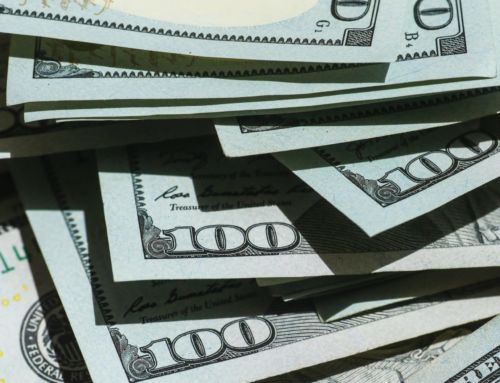You’re certainly familiar with the expression, “Time is money.” What does this expression mean to you? How could an intangible concept like time be the same thing as money in your pocket?
The two terms are so closely related that they can refer to the same value to you. For example, if you make $25 per hour, then four hours of your time is equal to $100 to you. In this case, you can clearly see how time is money.
Let’s take this idea a step further. In the world of finance, there is a concept called the “time value of money.” The simplest example is the idea that receiving $5 today is better than receiving $5 six months from today. The sooner you can receive a payment, the more valuable it is.
This is primarily because you can begin earning money with that $5 once you’ve received it!
Have you ever noticed how a lottery pays out money? If you want to receive the full winnings, you are required to receive the payments over time, usually 20 years or more. The optional one-time payout results in receiving substantially less money. This is an example of the time value of money.
So, what is the equivalent value in the future? This is the “future value”.
The future value is simply the original amount plus any interest or gains you could reasonably expect to receive over a given time period. Pretend that you have the option of receiving $1,000 today or $1,075 in 12 months. Which is the better option?
It depends on how well you can grow the money. If you’re certain you can make 10% on your money, it would be better to take the money today. You could earn an additional $100 over the year by taking possession of the money right now. That’s better than earning $75 by waiting.
Consider a reverse example. Suppose you’re interested in leasing a car, but you don’t want to make monthly payments. Your dealer might try to slip one by you and simply tally up the payments and present you with a bill. However, car dealers are usually willing to cut you a deal if they can get all of their money today, rather than accepting payments over the next three years.
That is an example of “present value.”
Note that all three terms are related:
- Time value. The time value of money states that money in the present is worth more than the same amount in the future. This is a fundamental principle in finance.
- Future value. The future value is the value that money received today has in the future. The current interest rates and the time period determine the future value.
- Present value. The present value is the current value of an expected payment in the future. The time period and prevailing interest rates also determine the present value.
The phrase, “Time is money” is true! Remember to consider time in your calculations. You might not be a corporate finance professional, but the same concepts apply to your personal finances. Ensure time is on your side.






Leave A Comment
You must be logged in to post a comment.